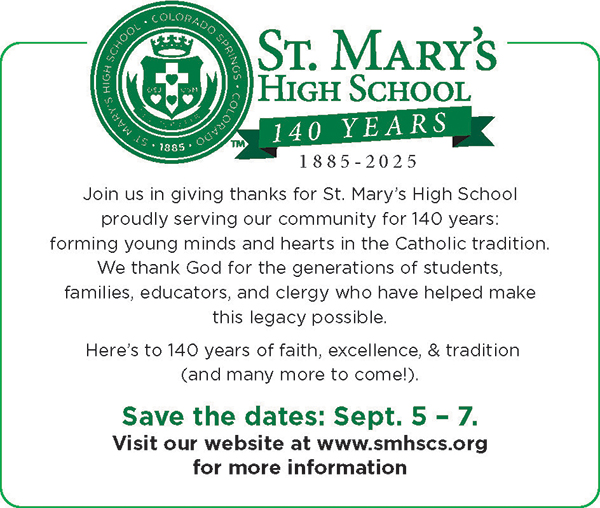Independence Day is a good time to reflect on role of Catholic education
By Tom Maj
As we conclude our celebration of Independence Day, I would like to reflect on the enduring and, indeed, increasingly crucial role that Catholic education plays in our society. While often viewed through a narrow lens, a deeper examination reveals its profound impact — an impact rooted in both faith and civic responsibility, and not dissimilar in spirit to the transformative vision that underpinned Abraham Lincoln’s land-grant colleges such as Colorado State University.
Just as the Morrill Act sought to make practical education accessible to a broader populace — fostering agricultural and mechanical arts to build a stronger nation — Catholic religious orders embarked on a parallel mission centuries earlier. Orders such as the Franciscans, Dominicans, and Jesuits as well as later congregations like the Sisters of Loretto, Salesians, Christian Brothers and Congregation of Holy Cross did not merely establish institutions; they pioneered widespread education for all social strata, often in contexts where formal schooling was a privilege of the elite. They recognized that a holistic education, encompassing not just academic rigor but also moral formation and spiritual development, was essential for the flourishing of individuals and communities.
This commitment to the whole person remains a cornerstone of Catholic education today. In an age grappling with complex ethical dilemmas and a search for meaning, Catholic schools offer a unique environment where critical thinking is nurtured alongside a robust moral framework. They provide a space where values like service, compassion, and justice are not just discussed but actively lived. This integrated approach cultivates well-rounded citizens who are not only intellectually capable but also ethically grounded and socially responsible.
It is fitting, as we celebrate our nation’s founding, to remember that the American experiment itself was grounded in a shared belief in Divine Providence. Our founding fathers frequently invoked the hand of Providence in their public writings and private correspondences, recognizing a guiding moral order in the birth of the republic. From George Washington’s solemn references to Providence in his inaugural address, to the Declaration of Independence’s appeal to the “Supreme Judge of the world” and “Nature’s God,” the founders understood liberty not as license but as a responsibility conferred and sustained by a higher power. Catholic education echoes this same conviction — that true freedom must be ordered toward the good, and that faith and reason, working together, prepare citizens not only to preserve democracy but to ennoble it.
Furthermore, Catholic schools have historically served, and continue to serve, diverse populations, often providing high-quality education in underserved communities. Their commitment to accessibility — frequently maintained through significant sacrifices and innovative funding models — mirrors the land-grant colleges’ goal of democratizing higher education.
In essence, Catholic schools are crucial because they continue to deliver on a foundational promise: to educate individuals not just for a career, but for a life of purpose, contributing positively to the world. Their historical legacy, rooted in the pioneering spirit of religious orders, their alignment with the Founders’ vision of a morally ordered republic, and their contemporary relevance — offering a vital blend of academic excellence and moral formation — make them indispensable assets in our educational landscape.
I invite all members of our diocese to join St. Mary’s in celebrating its 140th anniversary.
(Tom Maj is President of St. Mary’s High School. )

369